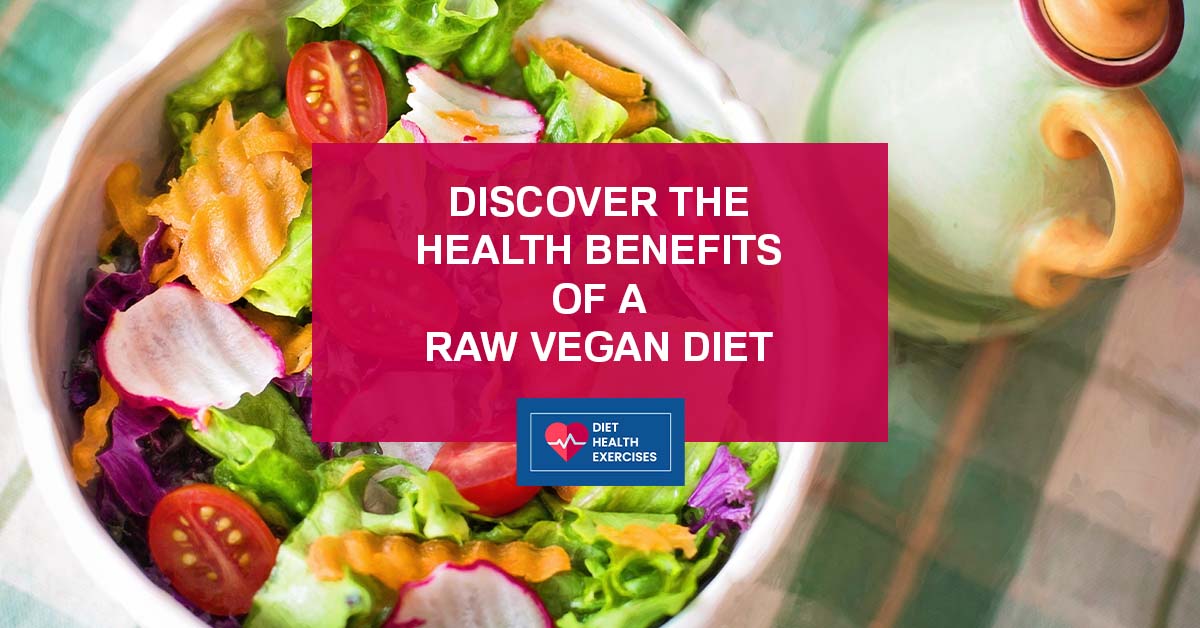The raw vegan diet has gained popularity in recent years for its numerous health benefits. But what exactly is a raw vegan diet? As the name suggests, it is a dietary lifestyle that consists of consuming only raw, unprocessed plant-based foods. This means that all animal products, including meat, dairy, eggs, and even honey, are strictly avoided. Instead, raw vegans rely on fruits, vegetables, nuts, seeds, and sprouted grains for their nutritional needs.
Table of Contents
ToggleWhat is a raw vegan diet?

A raw vegan diet is more than just a way of eating; it is a lifestyle choice rooted in the belief that uncooked and unprocessed foods are the most healthful and nutrient-dense. Raw vegans believe that cooking foods can destroy essential enzymes and nutrients, making them less beneficial for the body. By consuming foods in their natural state, they aim to maximize nutrient absorption and promote overall health and well-being.
Health benefits of a raw vegan diet
The health benefits of a raw vegan diet are vast and far-reaching. One of the most notable benefits is weight loss. Raw vegan foods are typically low in calories and high in fiber, which can help suppress appetite and promote a healthy weight. In addition, the high water content in fruits and vegetables can help keep you hydrated and feeling satisfied.
Another significant health benefit is improved digestion. Raw vegan foods are rich in fiber, which aids in digestion and promotes regular bowel movements. This can help alleviate constipation and reduce the risk of gastrointestinal diseases.
Furthermore, a raw vegan diet is packed with essential vitamins, minerals, and antioxidants that can boost the immune system and protect against chronic diseases such as heart disease, diabetes, and certain types of cancer.
Nutritional considerations on a raw vegan diet

While a raw vegan diet can provide numerous health benefits, it is essential to pay attention to certain nutritional considerations. One potential concern is getting enough protein, as plant-based sources may not be as concentrated as animal-based protein sources. However, it is still possible to meet protein needs on a raw vegan diet by incorporating foods such as nuts, seeds, legumes, and sprouted grains.
Another consideration is vitamin B12, which is primarily found in animal products. Since a raw vegan diet excludes these foods, it is recommended to supplement with a high-quality B12 supplement to ensure adequate intake.
Ready to take control of your nutrition? Explore our page for an intuitive calorie calculator that empowers you to make informed choices for a balanced and healthier lifestyle.
Calcium is another nutrient that may require attention on a raw vegan diet. While dairy products are not consumed, there are plenty of plant-based sources of calcium available, such as leafy greens, nuts, and seeds. It is crucial to include these foods regularly in the diet to maintain healthy bones and teeth.
Getting started with a raw vegan diet
If you are considering adopting a raw vegan diet, it is essential to ease into it gradually. Start by incorporating more raw fruits and vegetables into your meals and gradually increase the percentage of raw foods in your diet. Experiment with different recipes and flavors to keep things interesting and enjoyable.
It is also important to listen to your body and make adjustments as needed. Some individuals thrive on a fully raw diet, while others may find that a partially raw diet works better for them.
Find what works best for your body and lifestyle.
Raw vegan meal planning and recipes

Meal planning is key to success on a raw vegan diet. By planning your meals in advance, you can ensure that you have a variety of nutritious and delicious options readily available. Start by making a list of raw vegan staples such as fruits, vegetables, nuts, and seeds. Then, plan your meals around these ingredients.
There are countless raw vegan recipes available online that can inspire you and help you create flavorful and satisfying meals. From refreshing smoothie bowls to hearty salads and creative raw desserts, the possibilities are endless.
Experiment with different flavors and textures to find your favorite raw vegan dishes.
Common misconceptions about the raw vegan diet
Despite its growing popularity, the raw vegan diet is still surrounded by misconceptions. One common misconception is that it is difficult to get enough protein on a raw vegan diet. As mentioned earlier, there are plenty of plant-based protein sources available, and with proper planning, it is possible to meet protein needs on a raw vegan diet.
Another misconception is that a raw vegan diet lacks essential nutrients. While it is important to pay attention to certain nutrients, a well-planned raw vegan diet can provide all the necessary vitamins, minerals, and antioxidants for optimal health.
Overcoming challenges on a raw vegan diet

Transitioning to a raw vegan diet can come with its challenges. One common challenge is social situations, such as dining out with friends or attending family gatherings. It is important to communicate your dietary choices with others and be prepared with raw vegan alternatives or bring your own dishes to share.
Another challenge is the potential increase in food preparation time. Raw vegan meals often require more time for chopping, blending, and dehydrating. However, with proper planning and organization, this challenge can be overcome. Consider batch cooking and meal prepping to save time during the week.
Discover the path to a healthier you through daily exercise. Dive into our blog for insightful tips and tricks on embracing a vibrant and active lifestyle.
Success stories and testimonials
Many individuals have experienced remarkable health transformations on a raw vegan diet. From weight loss and increased energy to improved digestion and glowing skin, the success stories are inspiring. These testimonials serve as a testament to the power of a raw vegan diet in supporting overall health and well-being.
Emily’s Transformation: From Fatigue to Vitality
Emily had struggled with low energy levels and digestive issues for years. She decided to try the raw vegan diet after researching its potential benefits. Within a few weeks of transitioning, Emily noticed a significant increase in her energy levels. Her digestion improved, and she even shed a few pounds. “I never thought I could feel this vibrant and light,” says Emily. “The raw vegan diet has truly transformed my health.”
Michael’s Weight Loss Journey
Michael had battled with weight issues throughout his life. He decided to give the raw vegan diet a chance after hearing about its weight loss benefits. Within six months of adopting the diet, Michael lost over 40 pounds. “The raw vegan diet not only helped me lose weight, but it also changed my relationship with food,” he says. “I now enjoy eating and feel more in tune with my body.”
Sarah’s Skin Glow-Up
Sarah struggled with acne and skin issues that impacted her self-esteem. After trying various skincare products with little success, she turned to the raw vegan diet as a last resort. Over time, Sarah noticed a remarkable improvement in her skin. “My complexion cleared up, and my skin started to glow,” she shares. “I’m amazed by the transformation, and I credit it to the raw vegan lifestyle.”
Enhance your well-being with restful nights. Explore our blog for essential tips on achieving healthy sleep and waking up refreshed every day.
Frequently Asked Questions
What is a raw vegan diet?
A raw vegan diet is a dietary lifestyle that consists of consuming only plant-based foods that are not cooked above a certain temperature, usually around 118°F (48°C). This diet includes raw fruits, vegetables, nuts, seeds, and sprouted grains.
What are the health benefits of a raw vegan diet?
A raw vegan diet is believed to offer various health benefits, including improved digestion, increased energy levels, weight management, reduced risk of chronic diseases, clearer skin, and enhanced nutrient intake due to the preservation of enzymes and nutrients in raw foods.
Are there any risks associated with a raw vegan diet?
While a raw vegan diet can provide numerous health benefits, it may also pose some risks. Potential risks include nutrient deficiencies, especially vitamin B12, calcium, iron, and omega-3 fatty acids, as well as the challenge of obtaining enough protein. It’s important to plan a balanced diet and consider supplementation when necessary.
Can I get enough protein from a raw vegan diet?
Getting enough protein on a raw vegan diet can be challenging, as many traditional sources of protein, such as beans and legumes, are typically consumed cooked. However, you can obtain protein from sources like nuts, seeds, sprouted grains, and plant-based protein powders.
How can I ensure I’m getting essential nutrients?
To ensure you’re getting essential nutrients on a raw vegan diet, focus on a diverse range of foods. Include a variety of colorful fruits and vegetables to get a wide spectrum of vitamins and minerals. Consider incorporating fortified foods or supplements for nutrients that are harder to obtain from raw plant-based sources.
Is cooking all foods really harmful?
Cooking foods can alter their nutritional profile by breaking down some nutrients and enzymes. However, cooking also has its benefits, as it can make certain nutrients more bioavailable and kill potential pathogens. A balanced approach, incorporating some lightly cooked foods, can be beneficial.
Can a raw vegan diet help with weight loss?
A raw vegan diet can aid in weight loss due to its emphasis on whole, nutrient-dense foods that are typically lower in calories. However, individual results may vary, and it’s important to ensure you’re still meeting your nutritional needs while maintaining a healthy calorie balance.
Unlock valuable insights about your health journey by visiting our page and using our BMI calculator. Take the first step towards understanding your body better and making informed decisions for a healthier future.
Are there any age groups that should avoid a raw vegan diet?
Children, pregnant or breastfeeding women, and elderly individuals should approach a raw vegan diet with caution. These groups have higher nutrient requirements and are more susceptible to deficiencies. Consult with a healthcare professional before making significant dietary changes.
How should I transition to a raw vegan diet?
Transitioning to a raw vegan diet should be gradual. Start by incorporating more raw foods into your current diet and gradually reducing cooked and processed foods. Listen to your body, stay hydrated, and be patient with the process.
Can I dine out while on a raw vegan diet?
Dining out on a raw vegan diet can be a bit challenging, but it’s not impossible. Look for restaurants with salad bars, fresh fruit options, and vegetable-based dishes. You can also communicate your dietary preferences to the staff and ask for customized options.
Remember, it’s important to consult with a healthcare professional or registered dietitian before making any significant changes to your diet, especially if you have underlying health conditions or concerns.
Conclusion and next steps
In conclusion, a raw vegan diet can offer numerous health benefits, including weight loss, improved digestion, and protection against chronic diseases. However, it is important to pay attention to nutritional considerations and make adjustments as needed. By gradually incorporating more raw foods into your diet, planning your meals, and being prepared for challenges, you can embark on a successful raw vegan journey. So why not give it a try and experience the health benefits of a raw vegan diet for yourself?


